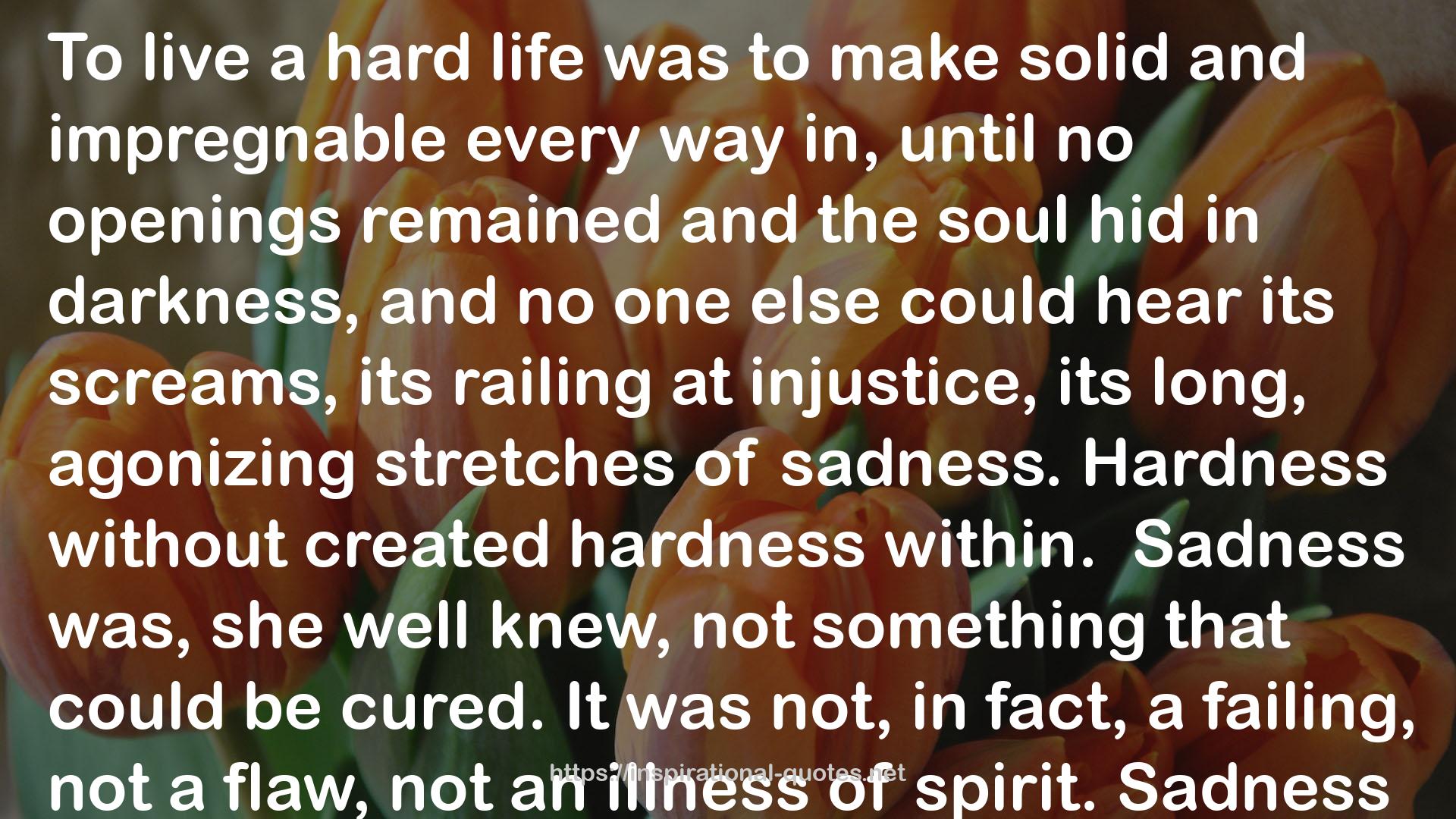" To live a hard life was to make solid and impregnable every way in, until no openings remained and the soul hid in darkness, and no one else could hear its screams, its railing at injustice, its long, agonizing stretches of sadness. Hardness without created hardness within.
Sadness was, she well knew, not something that could be cured. It was not, in fact, a failing, not a flaw, not an illness of spirit. Sadness was never without reason, and to assert that it marked some kind of dysfunction did little more than prove ignorance or, worse, cowardly evasiveness in the one making the assertion. As if happiness was the only legitimate way of being. As if those failing at it needed to be locked away, made soporific with medications; as if the causes of sadness were merely traps and pitfalls in the proper climb to blissful contentment, things to be edged round or bridged, or leapt across on wings of false elation.
Scillara knew better. She had faced her own sadness often enough. Even when she discovered her first means of escaping it, in durhang, she’d known that such an escape was simply a flight from feelings that existed legitimately. She’d just been unable to permit herself any sympathy for such feelings, because to do so was to surrender to their truth.
Sadness belonged. As rightful as joy, love, grief and fear. All conditions of being.
Too often people mistook the sadness in others for self-pity, and in so doing revealed their own hardness of spirit, and more than a little malice. "
― Steven Erikson , Toll the Hounds (Malazan Book of the Fallen, #8)
